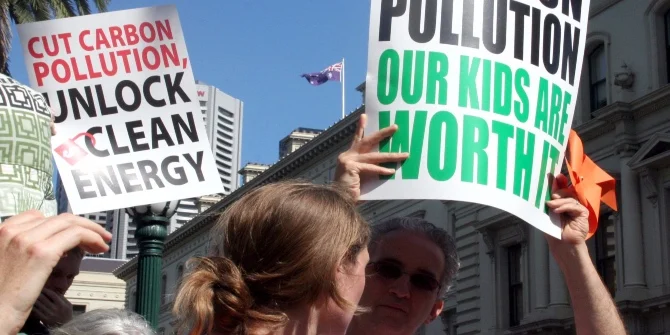In this CPLC blog, Mandy Rambharos, Head of Climate Change and Sustainable Development for Eskom Holdings, recaps the recent CPLC workshop on carbon pricing and competitiveness in South Africa. Given the introduction of a carbon tax in June, she also provides context for what carbon pricing means for the South Africa economy and business community.
Carbon pricing is finally enjoying some momentum, despite setbacks
Last week, Stefano Carattini and Steffen Kallbekken wrote “Carbon pricing is finally enjoying some momentum, despite setbacks” for the London School of Economics Business Review. The authors argue that recent articles on the status of carbon pricing and its perceived lack of political feasibility do not line up with the facts. Read their insights.
Carbon pricing central to Ireland’s new Climate Action Plan
Ireland published its new Climate Action Plan on June 17th, 2019. Among several climate strategies, what role does carbon pricing play in the plan? Read Dr. Joseph Curtin’s insights in this CPLC blog.
Moving towards next generation carbon markets
The Future of U.S. Carbon-Pricing Policy
Dr. Robert Stavins provides a brief summary of his new paper “The Future of U.S. Carbon-Pricing Policy”. The full paper can be downloaded here. In his paper and in this blog, Dr. Stavins explores two questions: (1) how do the two major approaches to carbon pricing (carbon taxes and cap and trade) compare on relevant dimensions, including but not limited to efficiency, cost-effectiveness, and distributional equity? (2) Which approach is more likely to be adopted in the future in the United States?
Getting Real on Meeting Paris Climate Change Commitments
Carbon pricing should drive African development, not hinder it
This week, representatives from government, business and civil society are gathering at the Carbon Pricing Leadership Coalition’s High-Level Assembly to discuss how carbon pricing can be used to shift investments towards low-carbon and climate-resilient projects, and how carbon pricing can address broader social concerns.
Columbia University's Center on Global Energy Policy Joins the CPLC
As carbon pricing gains increasing attention around the world, it’s essential that policies are informed by independent and sound analysis. The Carbon Tax Research Initiative at Columbia University's Center on Global Energy Policy is pleased to join the Carbon Pricing Leadership Coalition to offer its analytical expertise and learn from CPLC members about the opportunities and challenges of carbon pricing. CGEP’s initiative helps policymakers, businesses, and other leaders understand carbon pricing and the impacts on the economy, emissions and energy markets.
Can Article 6 Benefit African Countries?
In the latest IETA insights Article, Mandy Rambharos takes a look at the impact Article 6 could have on African nations and their development goals—driven by a need to ensure access to energy.






















